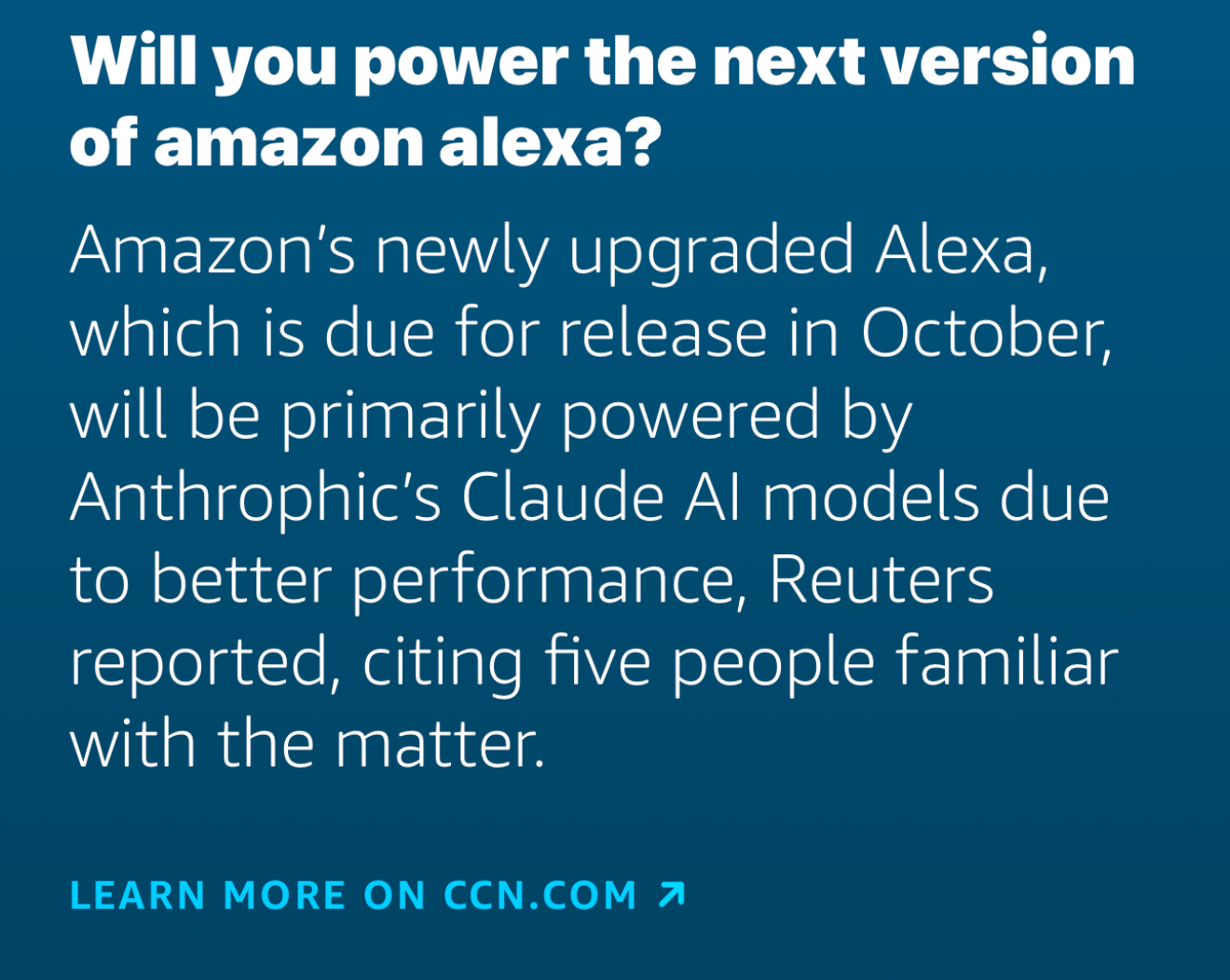Go Here to Read this Fast! Virtua Fighter 5 is returning for the first time in 18 years, sort of
Originally appeared here:
Virtua Fighter 5 is returning for the first time in 18 years, sort of
Go Here to Read this Fast! Virtua Fighter 5 is returning for the first time in 18 years, sort of
Originally appeared here:
Virtua Fighter 5 is returning for the first time in 18 years, sort of
Originally appeared here:
3 underrated Netflix movies you should watch this weekend (November 22-24)
Go Here to Read this Fast! We love the OnePlus 12, and we love its $250 discount too!
Originally appeared here:
We love the OnePlus 12, and we love its $250 discount too!
Go Here to Read this Fast! Corsair Vengeance i5100 review: falling short of its potential
Originally appeared here:
Corsair Vengeance i5100 review: falling short of its potential
Go Here to Read this Fast! Hair removal is no joke: These Ulike Black Friday deals take it seriously
Originally appeared here:
Hair removal is no joke: These Ulike Black Friday deals take it seriously
Amazon is doubling its investment in Anthropic. The e-commerce giant will provide Anthropic with an additional $4 billion in funding on top of the $4 billion it committed last year. Although Amazon remains a minority investor, Anthropic has agreed to make Amazon Web Services (AWS) its “primary cloud and training partner.”
Before today’s announcement, The Information had reported that Amazon wanted to make any additional funding contingent on a commitment from Anthropic to use the company’s in-house AI chips instead of silicon from NVIDIA. It appears Amazon got its way, with both companies noting in separate press releases that Anthropic will use AWS Trainium and Inferentia chips to train future foundation models.
Additionally, Anthropic says it will collaborate with Amazon’s Annapurna Labs to develop future Trainium accelerators. “Through deep technical collaboration, we’re writing low-level kernels that allow us to directly interface with the Trainium silicon, and contributing to the AWS Neuron software stack to strengthen Trainium,” the company said. “Our engineers work closely with Annapurna’s chip design team to extract maximum computational efficiency from the hardware, which we plan to leverage to train our most advanced foundation models.”
According to another recent report, Anthropic expects to burn through more than $2.7 billion before the end. Before today, the company had raised $9.7 billion. Either way, it’s bought itself some much-needed runway as it looks to compete against OpenAI and other companies in the AI space.
This article originally appeared on Engadget at https://www.engadget.com/ai/anthropic-will-use-aws-ai-chips-after-4-billion-amazon-investment-222053145.html?src=rss
Go Here to Read this Fast! Anthropic will use AWS AI chips after $4 billion Amazon investment
Originally appeared here:
Anthropic will use AWS AI chips after $4 billion Amazon investment
The 9th-gen iPad has fallen to $200 for Black Friday. Considering the regular price for this model was $330 at its peak, this is a great discount. This is a tablet Apple first released back in 2021, so it’s getting a bit long in the tooth. The 10th-gen iPad is Apple’s official “budget” tablet, as the 9th-gen will ultimately be phased out. But it’s still a fantastic machine, particularly for the price, particularly if you’re dead-set on getting an iPad but have little to spend.
This is a relatively ancient tablet with an equally ancient A13 Bionic chip. This isn’t the best iPad to buy for those looking for raw power. However, it’s the perfect tablet for those who want a media consumption machine on the cheap. Netflix in bed? Sign me up.
This sale is for the 64GB model and doesn’t apply to the 256GB version. The 9th-gen tablet is being discontinued, so it’s highly likely this is the last chance to pick one up at this price. Once the stock is gone, it’s all over.
Check out all of the latest Black Friday and Cyber Monday deals here.
This article originally appeared on Engadget at https://www.engadget.com/deals/apple-black-friday-deals-discount-the-9th-gen-ipad-to-a-record-low-of-200-161404354.html?src=rss
Originally appeared here:
Apple Black Friday deals discount the 9th-gen iPad to a record low of $200
The UK’s Competition and Markets Authority (CMA) has “provisionally concluded” that Apple’s restrictive mobile browser policies limit innovation. After an independent inquiry group shared its findings on browser competition on iOS and Android, the governing body’s board plans to conduct an in-depth assessment of how Apple and Google constrict third-party browsers on their platforms. However, Apple — with its more closed ecosystem — appears to have borne the brunt of the CMA’s concern.
The CMA’s investigation is based on the premise that Apple and Google have an effective duopoly on mobile platforms, allowing them to set the rules of how mobile browsers work. The board says third-party browser developers have complained that they’re constricted by rules like Apple’s requirement to use the company’s WebKit browser engine.
“The group has provisionally found that Apple’s rules restrict other competitors from being able to deliver new, innovative features that could benefit consumers,” the CMA wrote. “Other browser providers have highlighted concerns that they have been unable to offer a full range of browser features, such as faster webpage loading on iPhone.”
The Digital Markets, Competition and Consumers Act (DMCC), which passed earlier this year, will give the UK body extra ammunition to carry out its next steps. The UK’s equivalent of the EU’s Digital Markets Act (DMA) can designate big tech companies as having “Strategic Market Status” with “substantial and entrenched market power” and “a position of strategic significance.”
Much like the EU’s version, the law gives the UK some teeth to negotiate and force concessions from Big Tech behemoths that, at least in the US, often seem untouchable: The DMCC will empower the UK board to fine infringing companies up to 10 percent of their global revenue.
The CMA’s summary of Apple’s hearing reveals the iPhone maker argued that it restricts browser engines to “ensure users get the best security, privacy, and performance on iOS devices” — a familiar argument to those who’ve followed Apple’s previous competition trials. Apple claimed healthy competition exists, due to the presence of third-party browsers with features like ad-blocking, VPNs and AI. The company also said it routinely considers developer feedback and hadn’t heard any fuss over its current browser rules.
Contradicting that, the CMA said other browser providers have highlighted features they can’t implement on iOS, like faster webpage loading. “Many smaller UK app developers also told us that they would like to use progressive web apps — an alternative way for businesses to provide apps to mobile users without downloading apps through an app store — but this technology is not able to fully take off on iOS devices,” the board wrote.
The CMA also said that how browser choices are presented to users lets Apple and Google “manipulate these choices to make their own browsers the clearest or easiest option.” In addition, it pointed out a revenue-sharing agreement between the two companies that “significantly reduces their financial incentives to compete in mobile browsers on iOS.”
The board’s next step is a period of open comments on its findings, which will end on December 13. After its investigation, the CMA expects to make its final ruling in March 2025.
This article originally appeared on Engadget at https://www.engadget.com/big-tech/uk-watchdog-says-apples-rules-restrict-ios-browser-competition-201106359.html?src=rss
Go Here to Read this Fast! UK watchdog says Apple’s rules restrict iOS browser competition
Originally appeared here:
UK watchdog says Apple’s rules restrict iOS browser competition


Originally appeared here:
You can finally try Windows Recall, if you have a Copilot+ PC with a Snapdragon chip

